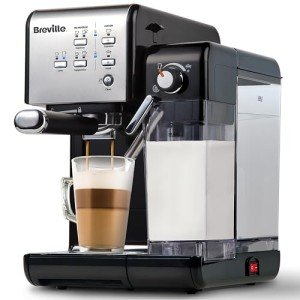Home Use Espresso Machines: A Comprehensive Guide
Espresso machines have become a staple in numerous homes as coffee lovers seek to reproduce café-quality brews in the comfort of their cooking areas. The increase in appeal has actually caused a diverse market filled with various designs, features, and costs. This short article intends to offer a helpful introduction of home use espresso machines, assisting readers navigate their alternatives effectively.
Understanding Espresso Machines
Espresso machines work by requiring hot water through finely-ground coffee under high pressure, resulting in a concentrated coffee beverage referred to as espresso. There are a number of types of espresso machines classified based on their brewing techniques and level of automation. The most common types consist of:
- Manual Espresso Machines: These require the user to control the pressure and water flow, permitting for a more hands-on coffee-making experience.
- Semi-Automatic Espresso Machines: These provide automatic control over water pressure, while the user manually grinds and tamps the coffee.
- Automatic Espresso Machines: With the push of a button, these machines automatically control the flow of water, making it easier to brew espresso with constant results.
- Super-Automatic Espresso Machines: These all-in-one machines handle grinding, tampering, developing, and even milk frothing, making them perfect for users looking for benefit.
- Capsule or Pod Machines: These use pre-packaged coffee pods to produce espresso with very little effort, but they restrict option in developing methods and tastes.
Table: Comparison of Espresso Machine Types
| Type | Control Level | Relieve of Use | Cleaning up Level | Suitable For |
|---|---|---|---|---|
| Manual | User-controlled | Moderate | High | Coffee purists |
| Semi-Automatic | Partial automation | Moderate | Moderate | Home baristas |
| Automatic | Completely automated | Easy | Low | Busy individuals |
| Super-Automatic | Completely automated | Extremely easy | Really low | Convenience candidates |
| Capsule/Pod | Fully automated | Extremely easy | Extremely low | Casual drinkers |
Secret Features to Consider
When picking a home use espresso machine, it's vital to consider numerous features that can considerably impact the quality of espresso and user experience.
- Pressure: Look for machines that supply at least 9 bars of pressure, as this is thought about ideal for developing espresso.
- Boiler Systems: Single vs. dual boiler systems identify temperature level stability and the ability to brew espresso and steam milk concurrently.
- Grinder: Integrated grinders permit for freshly ground coffee, which enhances taste. Consider machines with adjustable grind settings.
- Milk Frother: For those who delight in cappuccinos and lattes, an integrated steam wand or automatic frother is crucial.
- Size and Design: Consider your kitchen area and visual preferences. Machines can be found in numerous sizes, from compact to big setups.
- Rate: Home espresso machines can range from a few hundred to a number of thousand dollars, so it's vital to establish a budget before exploring alternatives.
Advantages and disadvantages of Home Use Espresso Machines
| Pros | Cons |
|---|---|
| Benefit of brewing coffee in your home | Preliminary financial investment can be high |
| Quality of espresso is frequently remarkable | Requires some skill, especially with manual machines |
| Ability to try out flavors | Maintenance and cleaning can be labor-intensive |
| Can conserve cash in the long run | Not all machines will match every coffee preference |
Maintenance and Cleaning Tips
Maintaining an espresso machine is important for lengthening its life and ensuring constant brew quality. Here are some useful tips:
- Regular Descaling: Minerals from water can develop up in the machine. Best Budget Espresso Machines -3 months, depending upon water firmness.
- Daily Cleaning: Rinse portafilters, baskets, and steam wands after each use to avoid coffee oils from building residue.
- Use Filtered Water: This can assist reduce mineral accumulation and improve the taste of coffee.
- Change Gaskets and Seals: These elements might break with time and needs to be changed to maintain pressure and performance.
- Read the Manual: Each machine has specific care instructions; following these will ensure longevity.
FAQs About Home Use Espresso Machines
Q1: What is the best budget espresso machine?The best budget espresso machine frequently depends upon individual needs, however models like the DeLonghi EC155 or the Breville Bambino are popular among users for providing fantastic value. Q2: How long do home espresso machines usually last?With correct maintenance, home espresso machines can last anywhere from 5 to 15 years, depending on the quality of the machine and frequency of use. Best Budget Espresso Machines : Can I make cappuccinos and lattes with any espresso machine?While most espresso machines can make coffees and lattes, having a reliable
steam wand or frother is vital for attaining the best milk texture.
Q4: Are super-automatic machines worth the investment?For those who focus on convenience and fast brewing, super-automatic machines can be worth the investment, though they may lack some customizability in brew strength and taste. Q5: What types of coffee beans are best for espresso?While individual choice contributes, beans labeled as" espresso "blends are typically roasted darker, developing abundant flavors and a creamy texture when brewed.
Investing in a home espresso machine can change the daily coffee routine into something special, elevating home brews to café quality. By understanding the various types of machines, essential features to consider, maintenance needs, and weighing the
pros and cons, consumers can make educated decisions that fit their specific preferences. As the espresso culture continues to grow, no matter the option, every brew can be a delicious experience waiting to be savored.

